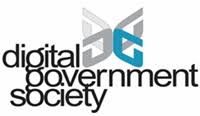Data, Algorithms, and Automation in Social Protection
A Data Justice Perspective on the Single Registry
DOI:
https://doi.org/10.59490/dgo.2025.1011Keywords:
Data Justice, automated decisions, Artificial Intelligence, Social ProtectionAbstract
In recent years—particularly following the COVID-19 pandemic—governments have expanded the use of digital technologies and automated systems in social protection policies. One of the most prominent developments in this field is the spread of Single Registries: unified databases of individuals and families in vulnerable situations, often integrated with artificial intelligence (AI) and automated decision-making tools. In Brazil, the Unified Registry for Social Programs (“Cadastro Único”) has become the main infrastructure for identifying and selecting beneficiaries of a wide range of social programs, including Bolsa Família. As of late 2024, it holds data on over 95 million people. In July 2024, the Brazilian government launched its national Artificial Intelligence Plan, allocating R$ 1.76 billion to the use of AI in public services—part of which is earmarked for modernizing Cadastro Único. While automation can improve the management and coordination of social policies, it also introduces new risks. If not carefully
implemented, automated systems can produce errors, limit access to rights, and reinforce existing inequalities. In 2019, the UN Special Rapporteur on extreme poverty warned of the emergence of a “digital welfare dystopia” marked by opacity, exclusion, and lack of accountability. This workshop proposes a critical dialogue on the expansion of AI and automation in social protection, using the Brazilian experience as a starting point. We aim to discuss how data-driven tools are reshaping eligibility, targeting, and control in welfare systems, and to reflect on how a data justice approach can help ensure that digital governance in this field promotes — not undermines — equity and inclusion.
Downloads
References
Nazareno, B. R. de, & Tortato, C. de S. B. (2019). A tecnologia do cadastro único no âmbito da política pública de assistência social – Reflexões correlatas ao campo de estudos em ciência, tecnologia e sociedade em face às políticas sociais adotadas no Brasil. Revista Tecnologias e Sociedade, 15(37), 371–388
Farias, L. de, & Dias, R. de B. (2018). O Cadastro Único: A consolidação de uma infraestrutura para programas sociais. Revista Teoria & Pesquisa, 27(1), 22–47. https://doi.org/10.31068/tp.27102
Sposati, A., Monteiro, M., & Anazawa, T. (Eds.). (2024). IMPDS: Um outro olhar do CadÚnico. SMADS/Paulus Social.
Dencik, L., & Sanchez-Mondero, J. (2022). Data justice. Internet Policy Review, 11(1). https://doi.org/10.14763/2022.1.1615
Van der Ploeg, L., & de Lange, T. (2021). Digital welfare fraud detection and the Dutch SyRI judgment. Journal of European Social Policy, 31(4), 487-499. https://doi.org/10.1177/13882627211031257
Barreneche, C., Bermúdez, A., & Martín, J. (2021). Datafication in corruption contexts: Sociotechnical imaginaries and resistance practices vis-a-vis anti-poverty systems in Colombia. Palabra Clave, 24(3). [link]
Redden, J., et al. (2022). Automating public services: Learning from cancelled systems. Carnegie UK Trust. [link]
Taylor, L. (2017). What is data justice? The case for connecting digital rights and freedoms globally. Big Data & Society, 4(2), 2053951717736335.
Agência Brasil. (2024, março). IA vai auxiliar no combate a fraudes no Bolsa Família. Agência Brasil. [link]
Downloads
Published
How to Cite
Conference Proceedings Volume
Section
License
Copyright (c) 2025 Danyelle Carvalho, Mariana Valente, Clarice Tavares, Isabella Bassani

This work is licensed under a Creative Commons Attribution 4.0 International License.


